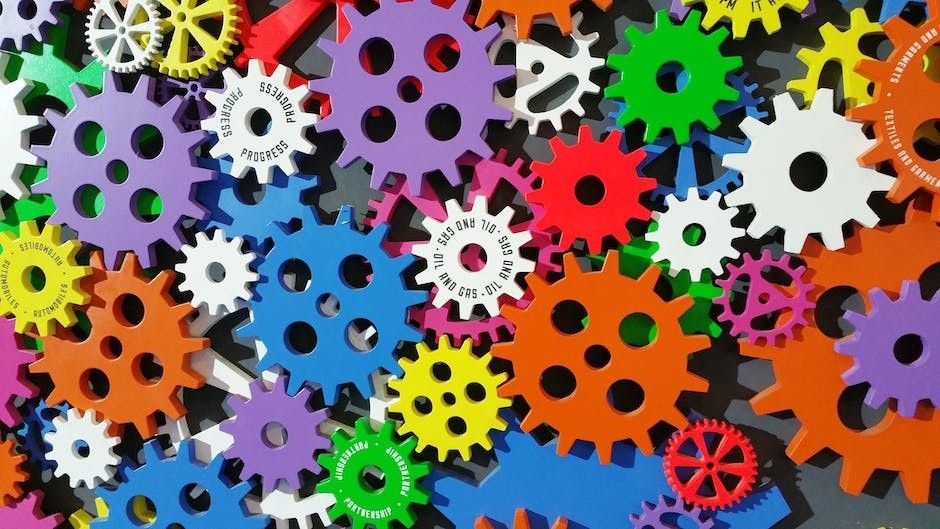

In today's rapidly evolving digital landscape, businesses are constantly seeking innovative ways to optimize their operations, improve efficiency, and drive growth. Two technologies that have emerged as game-changers in this regard are process automation and artificial intelligence (AI). While they share similarities in their transformative potential, process automation and AI are distinct in their capabilities and applications. In this article, we will delve into the world of process automation and AI, exploring their key characteristics, benefits, and differences, to shed light on how they can revolutionize businesses.
Process automation refers to the use of technology to automate repetitive and rule-based tasks, aiming to streamline business operations, reduce errors, and enhance productivity. It involves the design, implementation, and management of workflows, where manual activities are replaced by automated systems.
Key Characteristics and Benefits of Process Automation:
1. Efficiency: By automating mundane and time-consuming tasks, process automation frees up human resources to focus on more strategic and complex activities, resulting in increased operational efficiency.
2. Accuracy: Automated processes minimize the potential for human error, leading to improved accuracy and reliability in data handling and decision-making.
3. Scalability: Automation allows businesses to scale their operations seamlessly, accommodating increased workloads without requiring significant additional resources.
4. Consistency: Automated workflows ensure consistent adherence to predefined rules and standards, eliminating variations caused by human factors.
5. Cost Savings: By reducing manual effort and increasing productivity, process automation helps lower operational costs and improve overall profitability.
Artificial Intelligence, on the other hand, involves the development of systems that can simulate human intelligence and perform tasks that typically require human cognitive abilities. AI algorithms learn from vast amounts of data, enabling them to analyze, interpret, and derive insights, leading to intelligent decision-making.
Key Characteristics and Benefits of Artificial Intelligence:
1. Data Analysis: AI algorithms can analyze large volumes of structured and unstructured data, extracting valuable insights and patterns that may not be apparent to humans.
2. Predictive Capabilities: AI-powered systems can predict future outcomes, enabling businesses to make proactive decisions and mitigate risks.
3. Personalization: AI can personalize customer experiences by analyzing individual preferences and behaviors, leading to targeted marketing campaigns and enhanced customer satisfaction.
4. Natural Language Processing: AI systems can understand and generate human language, facilitating chatbots, voice assistants, and customer service automation.
5. Continuous Learning: AI algorithms can improve over time through machine learning, allowing systems to adapt and optimize their performance based on new data and experiences.
While process automation and AI share the goal of improving operational efficiency and reducing manual effort, there are key differences between the two:
1. Scope: Process automation focuses on optimizing workflows and streamlining operational processes, while AI extends beyond automation by enabling intelligent decision-making, data analysis, and prediction.
2. Complexity: Process automation typically handles repetitive tasks with predefined rules, while AI tackles more complex and dynamic problems, often involving uncertainty and learning from data.
3. Human Intervention: Process automation is rule-based and generally requires minimal human intervention, whereas AI systems can operate autonomously but may require human oversight and intervention for decision-making.
4. Data Dependency: Process automation relies on structured processes, whereas AI heavily depends on data availability and quality to train and improve its models.
Process automation and artificial intelligence are powerful technologies that can revolutionize businesses by improving efficiency, reducing errors, and enabling intelligent decision-making. While process automation streamlines operations and focuses on rule-based tasks, AI empowers businesses with data analysis, prediction, and personalization. The key lies in understanding the unique strengths of each technology and leveraging them to address specific business challenges. Ultimately, a combination of process automation and AI can propel businesses towards greater success and competitiveness in the digital era.
Curious how process automation is helping small businesses grow? Download our free whitepaper. To find out if Code Shoppe is a good fit for you and your business, simply complete the contact form below or click "Book a time now!" to schedule a free consultation directly on our calendar.
Your small business is growing and now the processes and systems that worked in the beginning are taking too much time leading to overwhelm, frustration, and human error. If only there was more time in the day to get it all done. We've got good news, there can be! Code Shoppe helps small business owners, like yourself, get time back, increase productivity and customer satisfaction, and position your business for growth.
Code Shoppe is a business consulting service for small and medium sized businesses(SMBs). We specialize in process automation and integrating all systems into a single source of truth. We have extensive experience building software that integrates with QuickBooks and offer a free initial consultation.
It’s our mission to help you recapture lost or inefficient time!